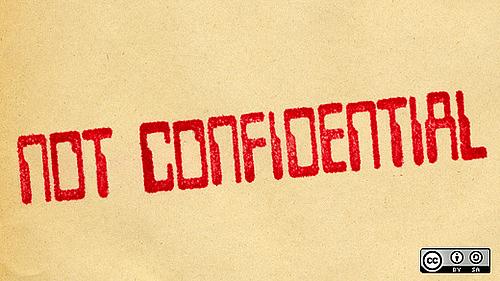Better Health Care Journalism Bolstered by Government Transparency

The Association of Health Care Journalists launched its new searchable database of hospital inspections this month. It’s hard to overstate the achievement of merely persuading a government agency as large as the Centers for Medicare & Medicaid Services to relinquish any amount of control over records, let alone records that put CMS’ core constituency – hospitals – in a bad light. In announcing the launch of the database, AHCJ wrote:
The move follows years of advocacy by AHCJ urging the government to release the deficiency reports in an electronic format. Until now, reporters and the public had to file Freedom of Information Act (FOIA) requests to the Centers for Medicare and Medicaid Services (CMS) to obtain the documents, a process fraught with delays that can stymie timely public knowledge of problems at hospitals.
Advocates for better health journalism should note that this is part of a trend that started when Len Bruzzese took over as executive director for AHCJ and accelerated when Charles Ornstein took the president’s chair. In that time, AHCJ has pulled off the following feats:
- Persuaded The Joint Commission, the nation’s largest nonprofit hospital accreditation organization, to make it easier for people to see when a hospital has lost it accreditation.
- Nailed down on-the-record pledges for more open access to public records from federal and state health officials, including the notoriously difficult FDA.
- Changed the embargo policy of the FDA to allow reporters to better cover important public health stories.
- Pulled together and posted a contact list of senior media officials at the U.S. Department of Health and Human Services – a task far more difficult than anyone outside of health reporting circles might imagine.
- Established a set of guidelines with state and local health officials for public information requests surrounding disease epidemics and other public health emergencies.
- Broke down the door to closed meetings being held by HHS.
In typical fashion, Ornstein used the buzz around the hospital database launch to push for greater access to records. He wrote to The Joint Commission, the private organization that inspects and accredits thousands of hospitals nationwide, to say:
Given the government’s steps to increase transparency around these vital reports, we once again call on The Joint Commission to do the same. At a minimum, we ask that you and your board join us for a conversation about what steps you can take to better inform the public about problems you find at accredited hospitals. In our previous exchanges, you have expressed concerns that the public release of The Joint Commission’s inspection reports would compromise your efforts to improve hospital quality. The AHCJ board cannot accept the notion that patients are best protected by keeping hospital problems secret. Such reasoning also flies in the face of growing consensus among health care leaders and policy makers about the importance of transparency to improve medical care quality.
So, does the new HospitalInspections.org database tool live up to the hype? To find out I took it on a test drive and compared it to Medicare’s own hospital database. I’ll tell you what I found out in my next post.
Image by opensource.com via Flickr

